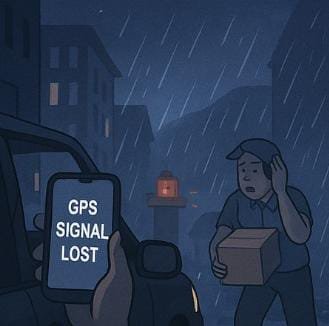
Satellites are silent partners in our daily lives—unseen, often unacknowledged, but absolutely essential. They orbit the Earth, quietly enabling everything from navigation and communication to weather forecasting and financial transactions. But what would happen if, overnight, every satellite simply vanished?
This thought experiment reveals just how deeply our civilization depends on space-based systems. Let’s explore the chain reaction that would unfold in a world suddenly without satellites.
Lost Without GPS
Navigation systems are among the most visible satellite applications. Without GPS, planes would miss runways, ships would lose direction, and delivery routes would become chaos. Traffic systems would falter. Emergency responders would struggle to locate people in need. From global logistics to a family road trip, the absence of GPS would throw transportation into disarray.
No Forecast, No Warning
Satellites are the eyes in the sky that track weather systems in real time. Without them, hurricanes, floods, and heatwaves would arrive with little or no notice. Communities would face disasters unprepared, increasing casualties and damages. Weather prediction would regress by decades, making entire regions vulnerable to sudden climatic events.
Disconnected World
Satellites play a critical role in global communication. Without them, internet outages would spike, long-distance phone calls would drop, and live broadcasts would be interrupted. Remote areas—especially those dependent on satellite internet—would go dark. Businesses, governments, and individuals alike would experience a breakdown in connectivity.
Blind to What Matters
Beyond communication and navigation, satellites provide crucial remote sensing capabilities. They monitor deforestation, track natural disasters, and observe conflict zones. Without this overhead view, environmental degradation and humanitarian crises would unfold unnoticed. We would lose our ability to see the big picture—literally.
Time Out of Sync
Satellite systems do more than track location; they synchronize global timing. Financial institutions rely on satellite timing for secure transactions. Power grids depend on it for stability. Without precise timestamps, bank systems could fail, stock markets might crash, and the digital infrastructure that powers our world could misfire in dangerous ways.
Satellites Are Invisible—Until They’re Gone
It’s easy to forget how much of modern life depends on space. Satellites don’t just float silently above us—they hold the world together. Without them, systems we take for granted would collapse almost instantly.
This scenario is not science fiction. It’s a wake-up call. The global economy, disaster response, climate science, and digital infrastructure are all rooted in our relationship with space technology. It’s time we start valuing and protecting the satellite systems that keep our world running—before we find out what life is like without them.
